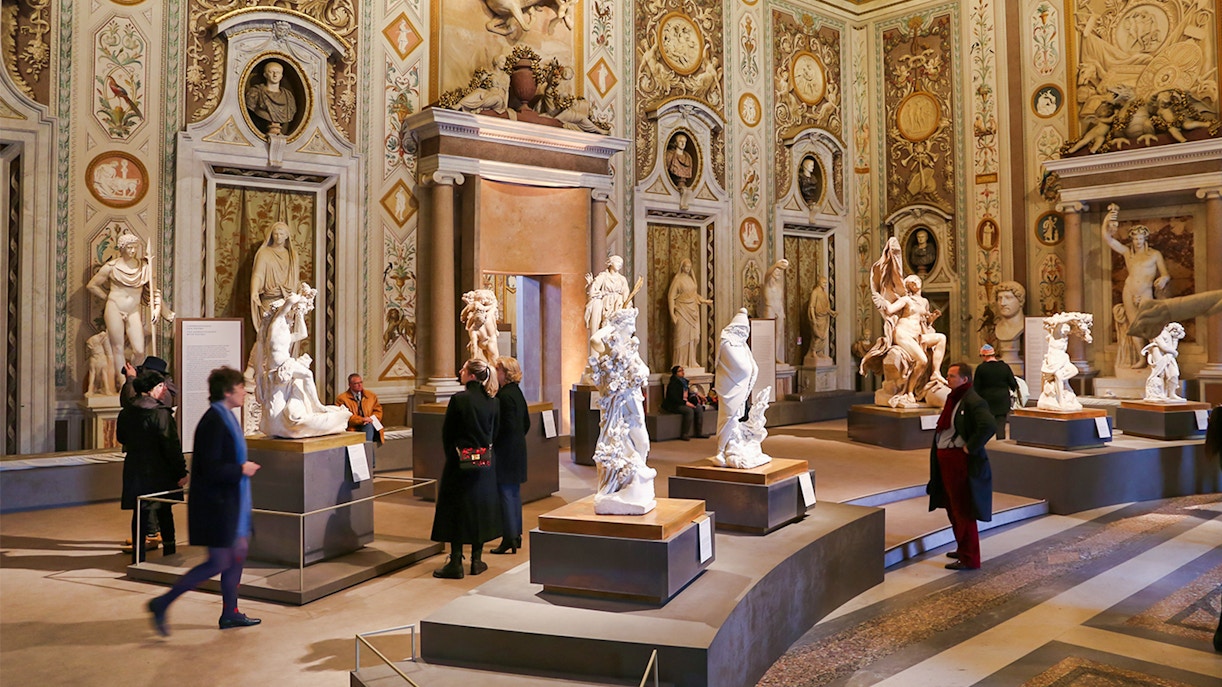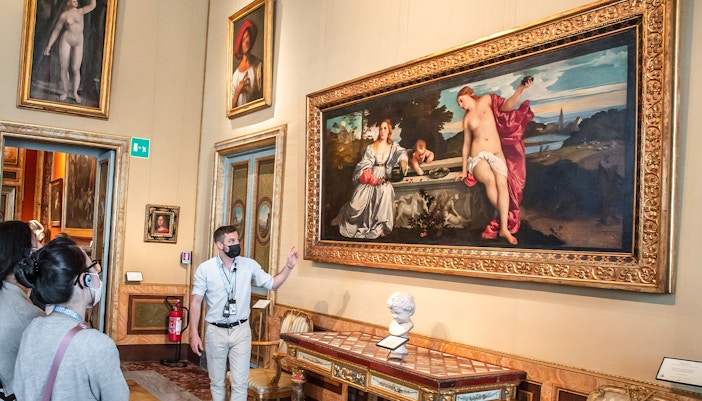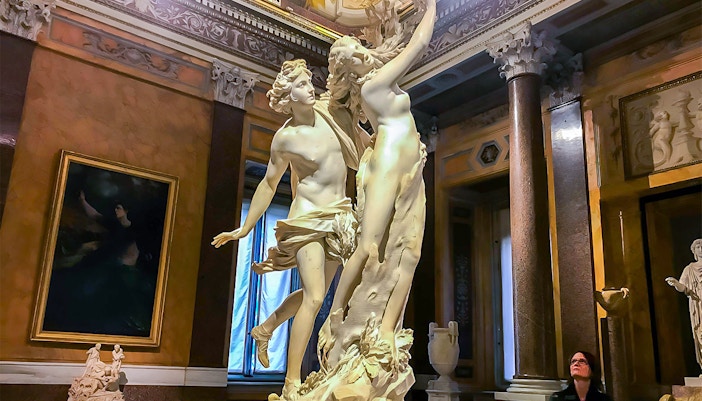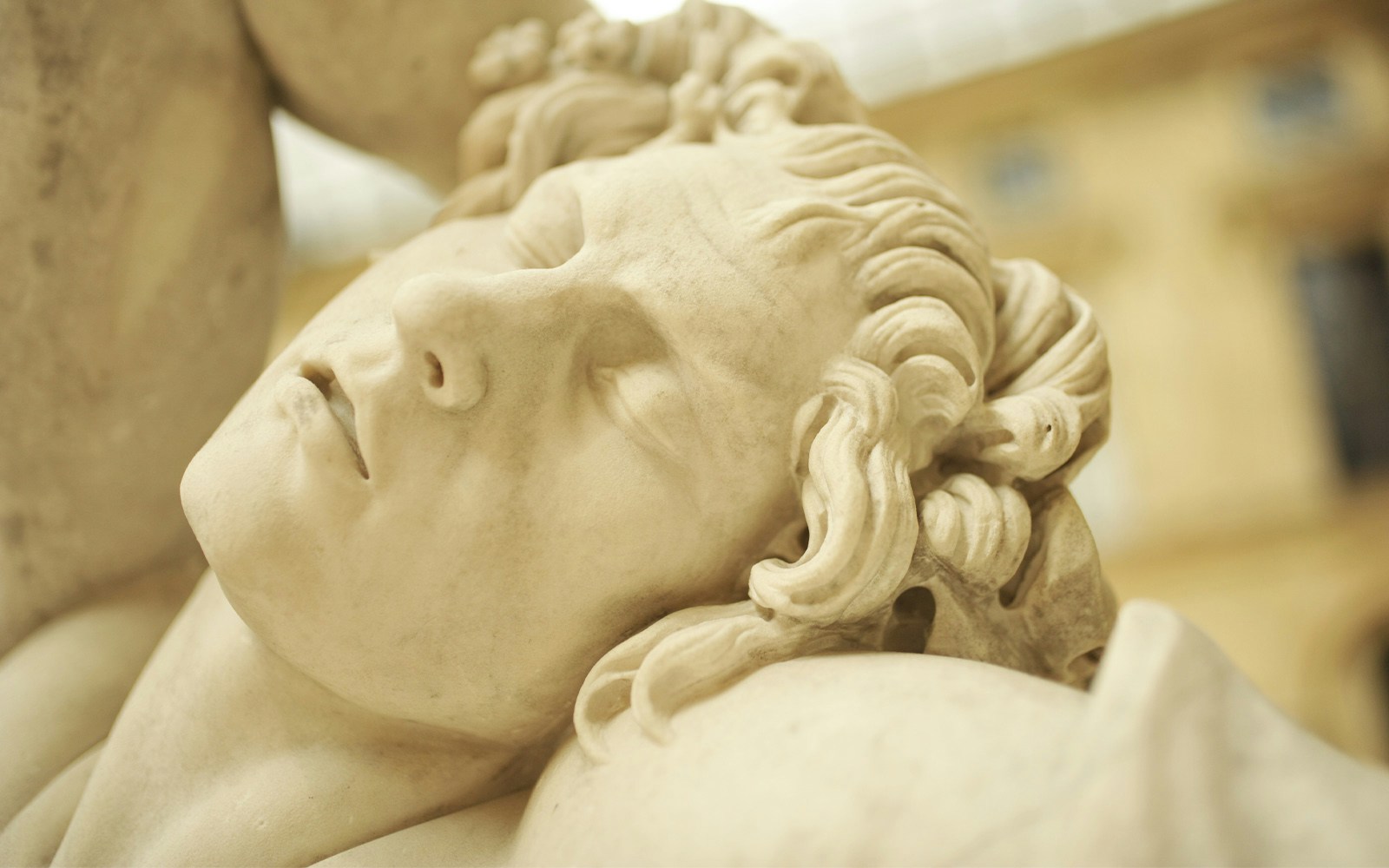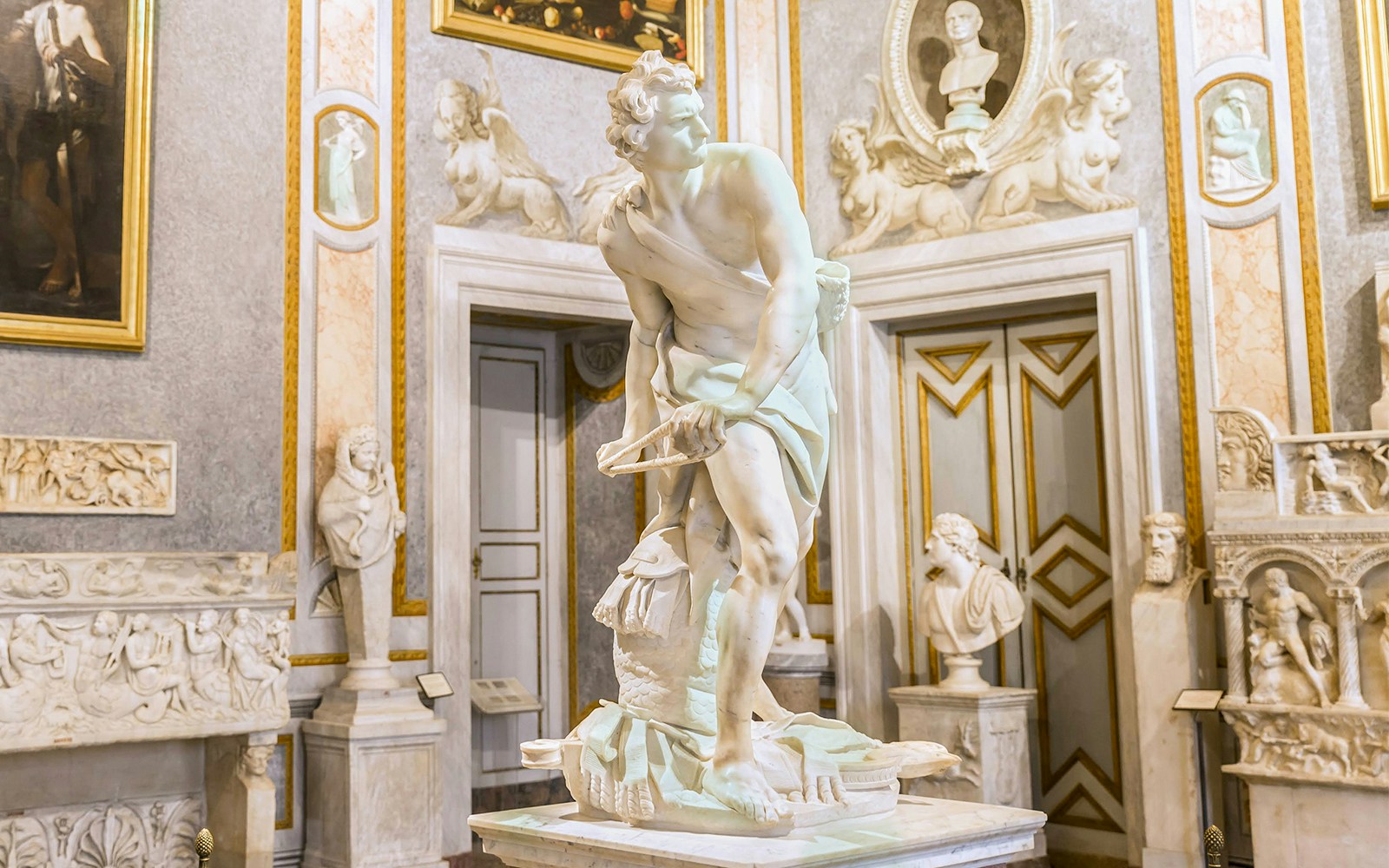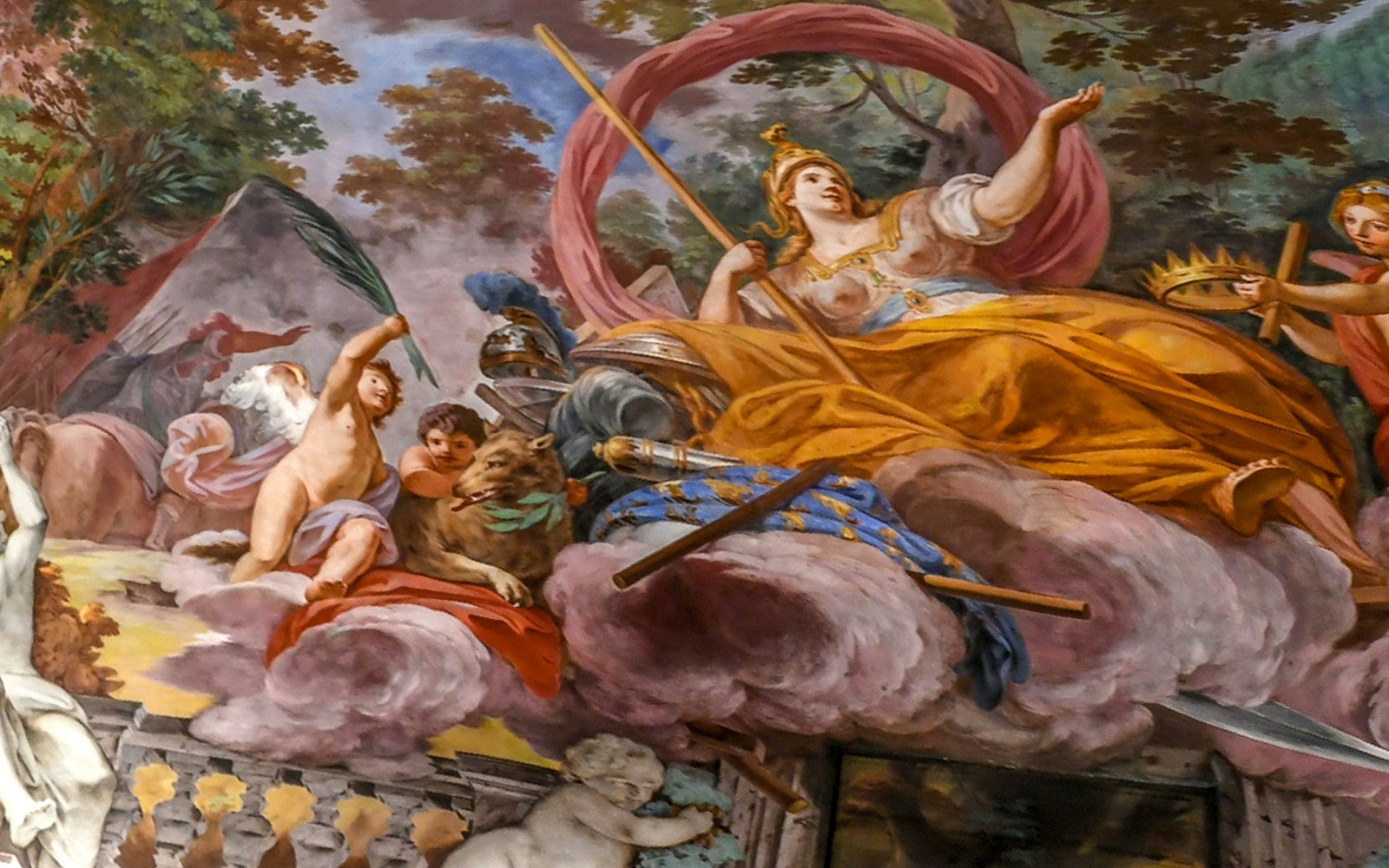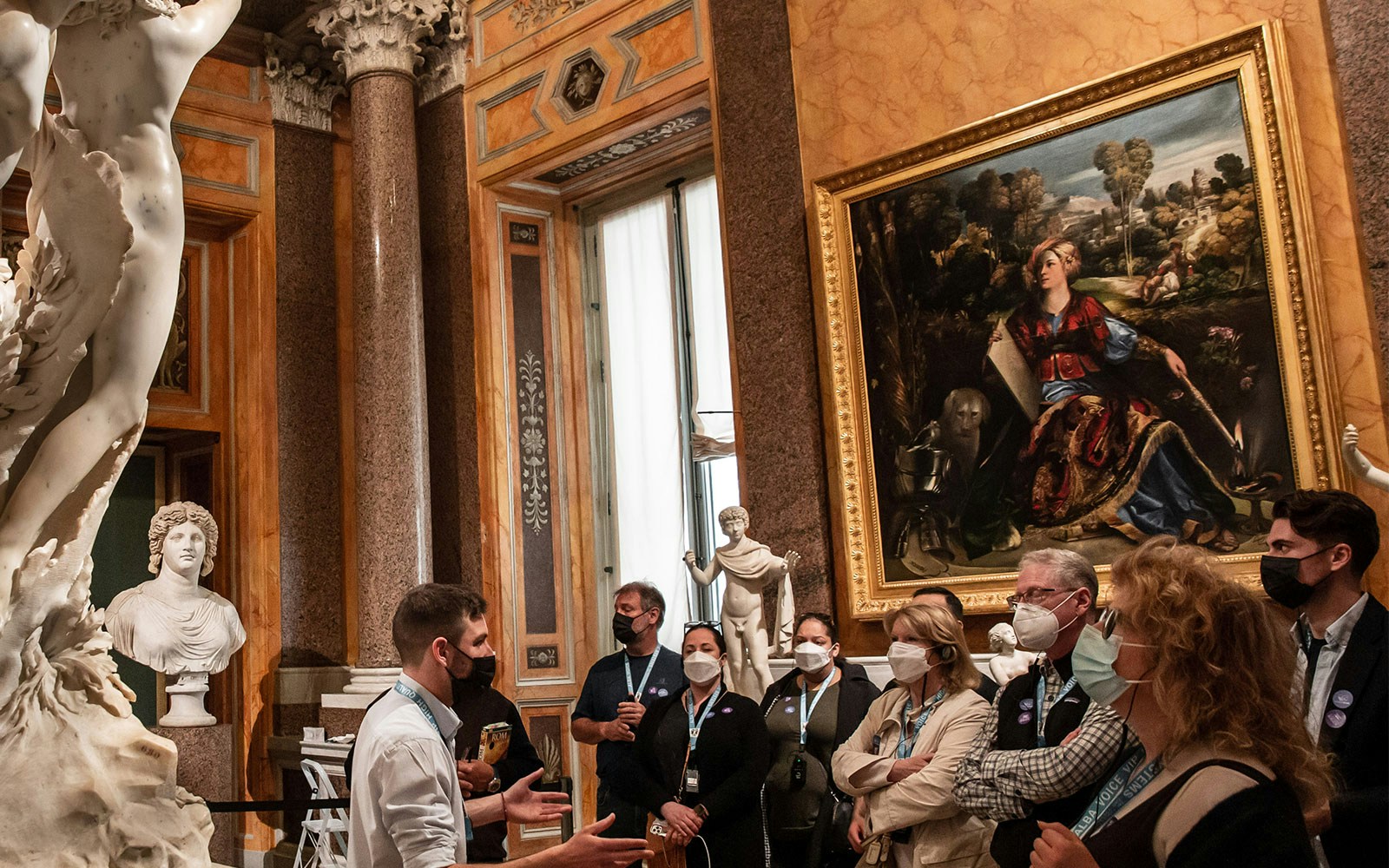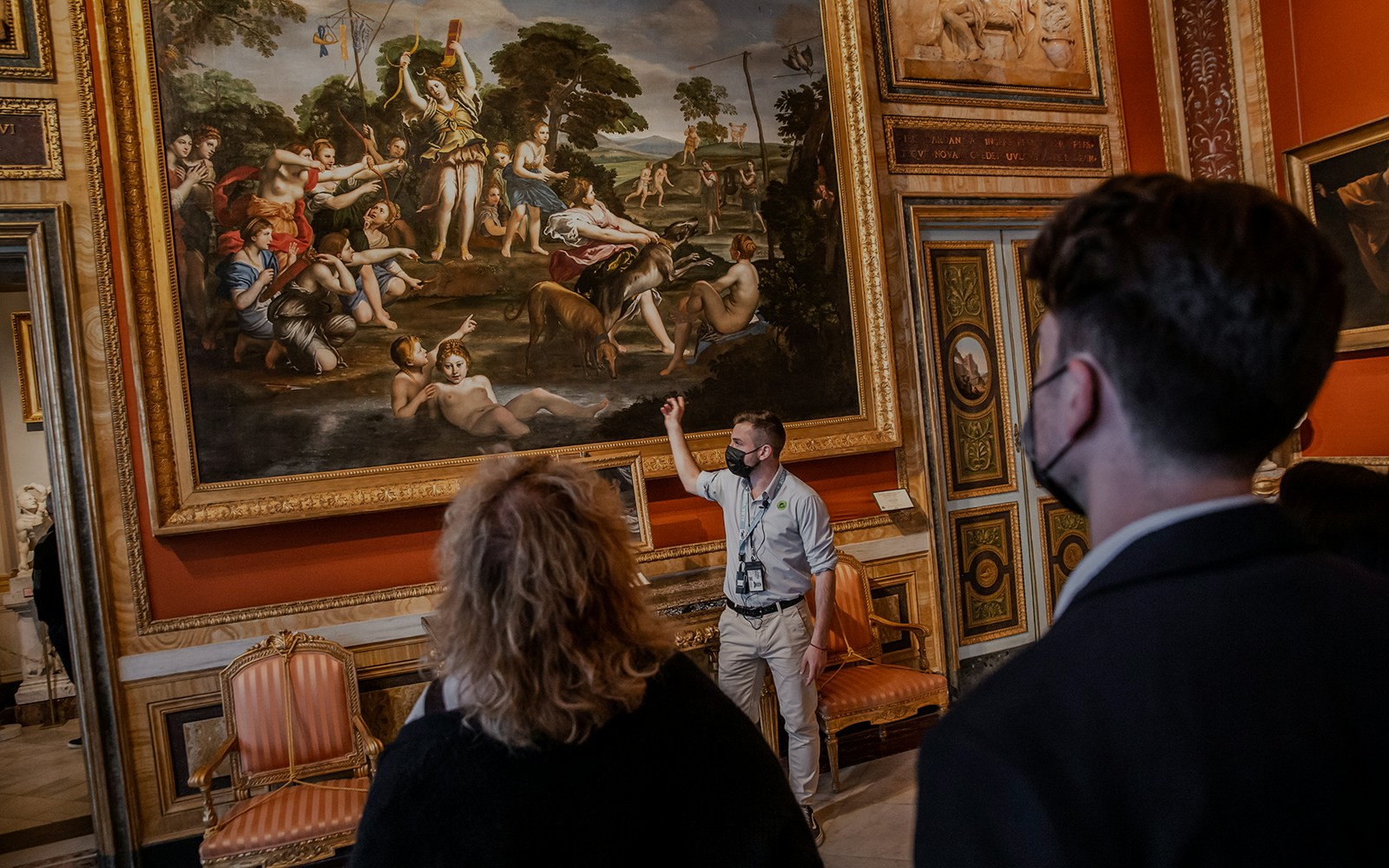Cardinal Scipione Borghese (1577–1633), an erudite and keen art collector of his time, founded the museum's collection. It was originally housed at the cardinal's mansion near St Peter's, but it was moved to his new villa outside on Pincian Hill in the 1620s. The collection of Borghese Gallery artworks consist of over 800 paintings, close to a hundred sculptures and various other artifacts. Visitors can expect to see works by famous artists such as Caravaggio, Raphael and Titian, as well as ancient Roman art.

